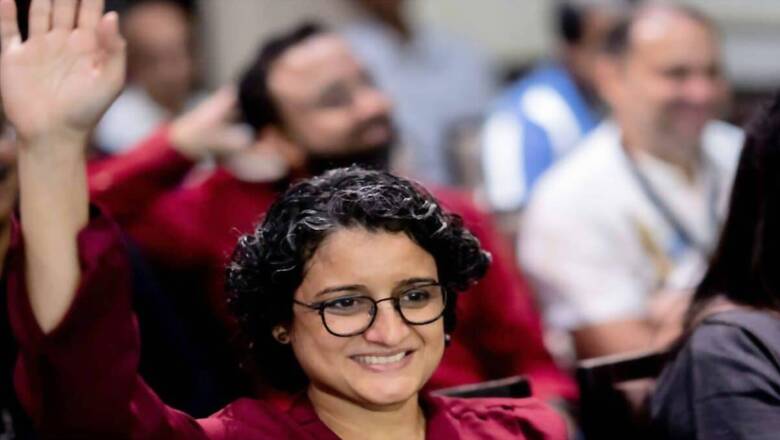
views
The Indian Institutes of Technology (IITs) came into existence in 1950. However, it is in 2023 that a woman finally becomes the head of one of these prestigious institutions. Prof Preeti Aghalayam has created history by becoming the first-ever director-in-charge of an Indian Institute of Technology. The institute she will be heading is also historic in itself, being the first IIT campus set up abroad, in Zanzibar, Africa.
“In IITs, women are a minority. This is the case at undergraduate, postgraduate level as well as among faculty. At IIT Madras about 12% of the faculty are women. There is no denying that the problem exists,” she said in an exclusive chat with News18.
She added that the male-female ratio is a bit stark at IITs because of the nature of their entry processes and the societal perception towards science and engineering.
“Perception in society is that engineering is not completely suitable for women. Many perceive IITs to be too hard. Coaching for IIT entrance is also tougher to access for women,” said Prof Aghalayam.
While she has been spearheading inclusivity initiatives in India, the academic does not believe that having a woman lead an IIT could instantly change the situation. However, she calls for a systematic and strategic push.
“Me becoming director-in-charge cannot wave the wand and make the problems go away. We need a lot of changes across the board. While educational institutes have a great role to play but society too has to change, people have to change; for it to become a more equal space for all genders,” she said.
‘Western Institutes Not Ahead in Gender Equity’
Aghalayam, who has pursued PhD from the University of Massachusetts and worked as a post-doctoral researcher at MIT, said that while Western institutes are ahead in some spheres of their Indian counterparts, they are not necessarily ahead of India when it comes to gender equity.
“I pursued my undergraduate degree at IIT Madras and both postgraduate and PhD at two different universities in the West. In my graduate school, the difference in representation of women was starker as compared to UG. I do not necessarily subscribe to the idea that things are better in the West,” she said.
While there has been a rise in women’s participation in science in the West, there has been a similar increase in IITs as well, she said.
Drawing on the government scheme Gender Advancement through Transforming Institutions (GATI), she said, “We (Indians) may be better off reflecting upon our situation in very thoughtful ways as compared to the West.”
Aghalayam is the nodal officer for the GATI programme at IIT Madras. As part of the programme, the professor says she and her colleagues had a chance to look at gender-segregated data in every sphere which helped them examine themselves. They had put together concrete plans which could make the institute gender equal in terms of both numbers and opportunities for the aspiration. These steps, she said, will be part of her mission as she heads the new campus.
‘Diversity and inclusivity are part of our mission’
She also said that in Africa, there is a high representation of women across spheres and levels.
“It is heartening to see women at top spots. We are expecting that our campus too will carry a local aspect of gender inclusivity. Time will tell actual results but diversity and inclusivity are part of our mission,” she said.
Talking about geographic inclusivity, she said, “One comfort and inspiration for me is the fact that this IIT Madras campus abroad is the statement of us embracing diversity. In our class in Chennai, over 95% of students are Indians. Here in the Africa-based campus, the composition will be different. It will be welcoming of people from various nationalities. Attracting diverse people to the campus will also push for newer and more inclusive policies. What we do is all for young people. The campus here will ensure they get the maximum out of their education.”



















Comments
0 comment